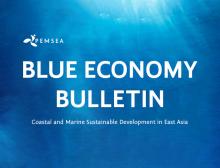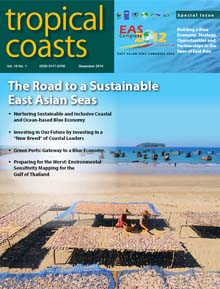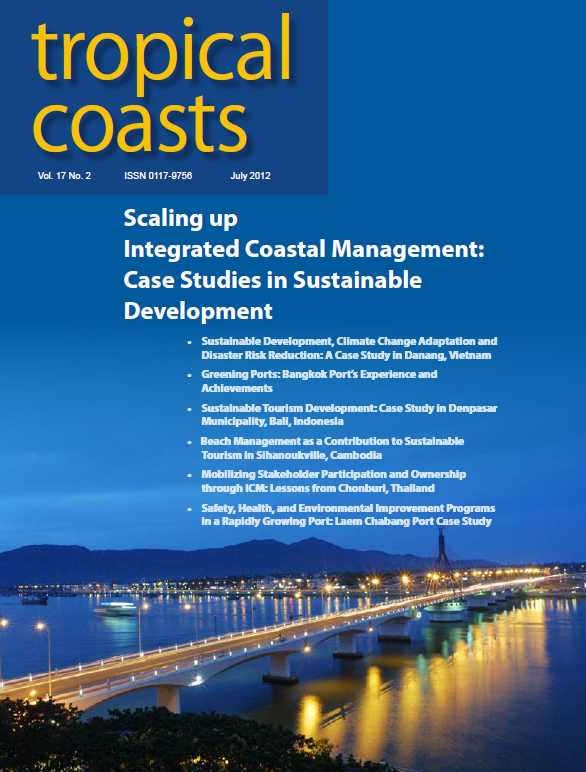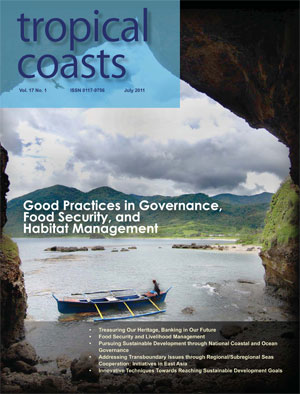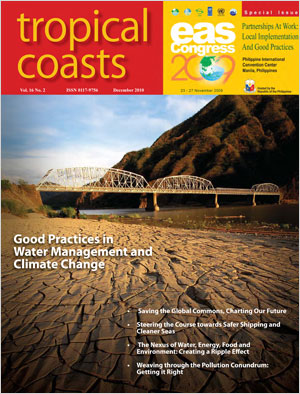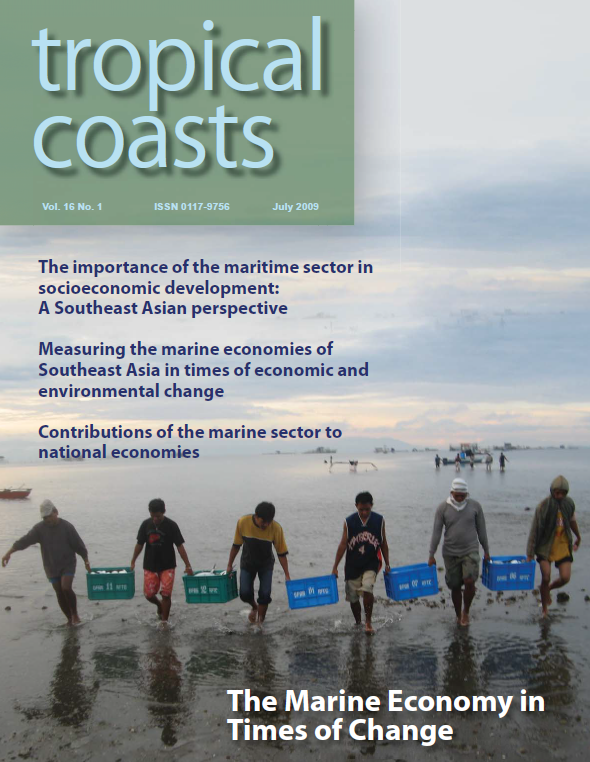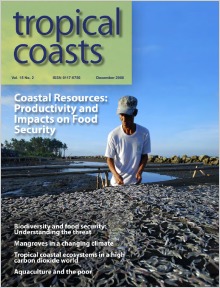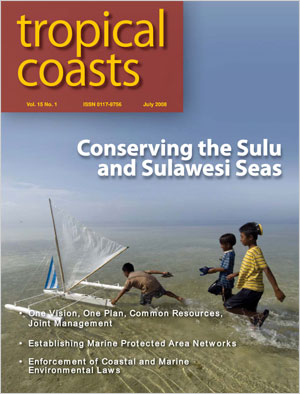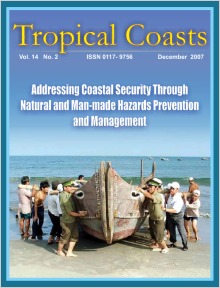
Breadcrumb
-
Blue Economy Bulletin April 2016
The BE Bulletin is a roundup of blue economy news and events including industry highlights, scientific developments, policy updates and more from East Asia and around the world.
With the release of the Blue Economy for Business Report and launch of the East Asian Seas Sustainable Business Network in late 2015, PEMSEA seeks to enhance the understanding of blue economy to help drive sustainable economic growth in the region. These efforts will bring together companies, investors and governments towards a common goal of blue economy growth, and in the coming months this will include the development of National State of the Coasts reports and the launch of a regional knowledge management and investment platform for blue economy. We will also be hosting regular blue economy expert webinars, the first in early Q2 this year. Stay tuned for further details.
Follow the latest updates on blue economy and coastal sustainable development in East Asia on Twitter at @PEMSEA. We welcome your feedback, and please let us know if there are blue economy-related topics you would like to see in future newsletters and programs.
-
The Road to a Sustainable East Asian Seas
This issue of Tropical Coasts focuses on building, strengthening and sustaining a blue economy for the EAS region. The breadth of discussions in this issue are taken from workshops and meetings during the East Asian Seas (EAS) Congress, “Building a Blue Economy: Strategy, Opportunities and Partnerships in the Seas of East Asia,” held in Changwon, RO Korea, on 9–13 July 2012. The fourth triennial EAS Congress touched on various facets of sustainable development, specifically the dynamic aspects of coastal and ocean governance and an ocean-based blue economy. The Congress was hosted by the Ministry of Land, Transport and Maritime Affairs and the City Government of Changwon. More than 1,200 participants from 25 countries and 23 regional and international organizations participated in the Congress, which was organized and conducted in collaboration with 24 co-conveners and 4 sponsors.
-
Scaling Up Integrated Coastal Management: Case Studies in Sustainable Development
This issue of Tropical Coasts expounds on different cases across the region that highlight the contributions of integrated and holistic management for sustainable development of coastal communities and sectors of the economy that are highly dependent on coastal resources. It features how the scaling up of ICM builds the capacity to adjust and respond to the growing challenges of a changing environment in Danang and Chonburi and contributes to the sustainable tourism in Bali and Sihanoukville. The issue also covers the implementation of the Port, Safety, Health and Environmental Management System (PSHEMS) in two major ports in the region. What is evident in the cases in this issue is that the scope of ICM implementation is growing. The case studies show that through ICM programs, the local governments and ports were able to maintain a balance between economic development and environmental and social demands and harness the potential that ICM offers. It is hoped that the experiences and lessons shared in these case studies will contribute to the replication of ICM across the region.
-
Good Practices in Governance, Food Security, and Habitat Management
This issue of Tropical Coasts expounds on the challenges and good practices in Ocean and Coastal Governance; Habitat Protection, Restoration and Management; and Food Security and Livelihood Management. It features discussions held during the International Conference on Sustainable Coastal and Ocean Development during the East Asian Seas Congress in Manila, Philippines, on 23-27 November 2009. The third triennial EAS Congress, hosted by the Government of the Philippines and co-organized by the Philippines Department of Environment and Natural Resources, attracted 1,480 participants, 100 exhibitors, 51 co-conveners and supporting organizations, and numerous sponsors.
-
Good Practices in Water Management and Climate Change
The third triennial EAS Congress, hosted by the Government of the Philippines and co-organized by the Philippines Department of Environment and Natural Resources, attracted 1,480 participants, 100 exhibitors, 51 co-conveners and supporting organizations, and 12 sponsors. Good practices covering three water-related issues were explored during the course of the International Conference, namely: (a) prevention of marine pollution from sea-based activities; (b) water use and management for food supply, energy production and ecosystem services; and (c) innovative approaches and practices in freshwater/marine water management, including pollution reduction.
-
The Marine Economy in Times of Change
This issue of Tropical Coasts presents the initial results of the economic contribution of the ocean to the countries of the region. Why is this important? As explained by McIlgorm, by identifying the economic contribution of the ocean sector, policymakers can be more aware of how external events, such as climate change, sea level rise, degradation and destruction of natural resources and pollution impact on economic growth and prosperity. For example, inundation of coastal areas by seawater may have a high economic impact, well beyond the value of the land that is lost. Some coastal areas can be surrendered at low cost, while others will have major infrastructures and facilities that are vital to local, regional and national economies, and must be defended.
-
Coastal Resources: Productivity and Impacts on Food Security
This issue of Tropical Coasts is a joint effort of PEMSEA and the ASEAN Centre for Biodiversity. This issue takes a look at the linkages between biodiversity and food security, and some of the issues and activities that are being pursued in the region and elsewhere. In sum, this issue of Tropical Coasts emphasizes that the “teaching a man to fish” proverb is still relevant. What has changed over time is the context of the philosophy, where the emphasis has shifted from fishing to teaching, learning and living with the indisputable connection between biodiversity and food security.
-
Conserving the Sulu and Sulawesi Seas
This issue of Tropical Coasts focuses on an LME within the Seas of East Asia, the Sulu and Sulawesi Seas, which is in the process of developing and implementing a tri-national partnership arrangement. The Sulu and Sulawesi Seas, also known as the Sulu-Celebes Sea, have been identified as a distinct LME, ecoregion, and seascape by the United States National Oceanic and Atmospheric Administration (US NOAA), World Wide Fund for Nature (WWF), and Conservation International (CI), respectively. This issue of Tropical Coasts is a joint effort of PEMSEA and Conservation International-Philippines, a non-Country Partner of PEMSEA, as well as contributions from the Tri-National Secretariat for the ECP, (i.e., Malaysia Department of Fisheries – Sabah). It features articles on the SSME covering the development of the ECP, the supporting management framework and governance arrangements, financing and partnerships mechanisms, and enforcement initiatives. A prognosis on future initiatives planned for this large marine ecosystem is also featured.
-
Addressing Coastal Security through Natural and Man-made Hazards Prevention and Management
This issue of Tropical Coasts highlights how a gathering of local government executives bounded by the common mission of "serving as a network of local governments in East Asia, which, along with their stakeholders, shall promote the application of ICM as an effective management framework to achieve sustainable coastal development," can become an indispensable mechanism for knowledge validation, transfer and replication. The 2007 Forum of the PEMSEA Network of Local Governments for Sustainable Coastal Development (PNLG)* held in Danang, Vietnam, on 5–7 September 2007 focused on the theme "Addressing Coastal Security by Investing in Natural and Man-made Hazards Prevention and Management." The forum provided a venue for facilitating the exchange of information and experiences in DRR among local governments, national agencies, partner organizations, civil society groups and the private sector. It also provided a platform for the ICM sites to discuss how institutional strengthening in the context of DRR can be achieved and identify innovative solutions and opportunities to implement DRR options based on specific risk context and circumstances of the respective sites.
